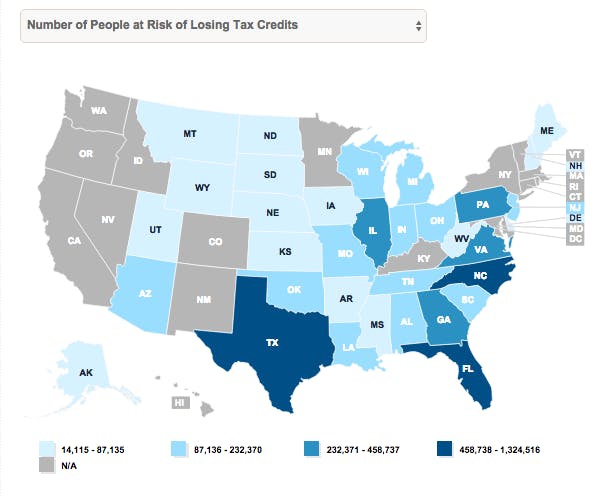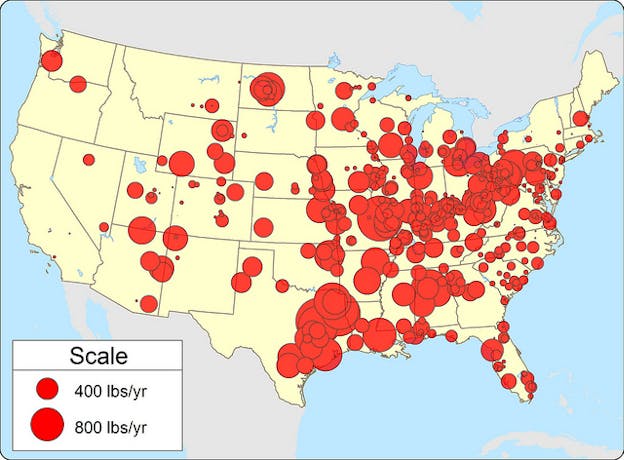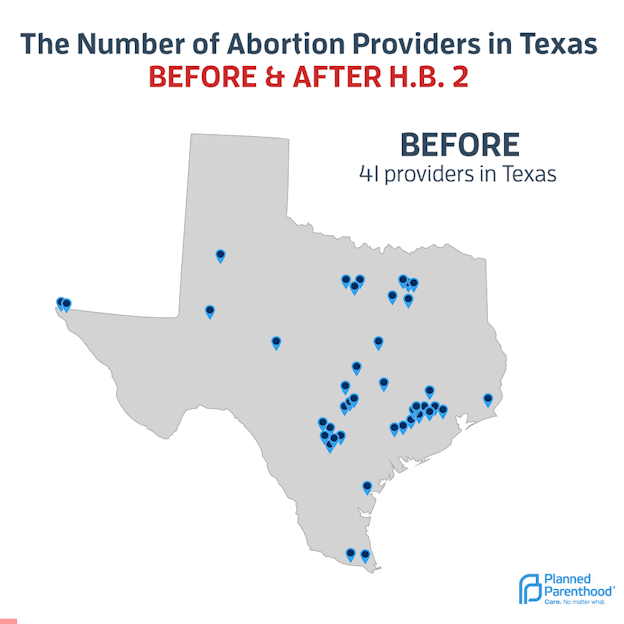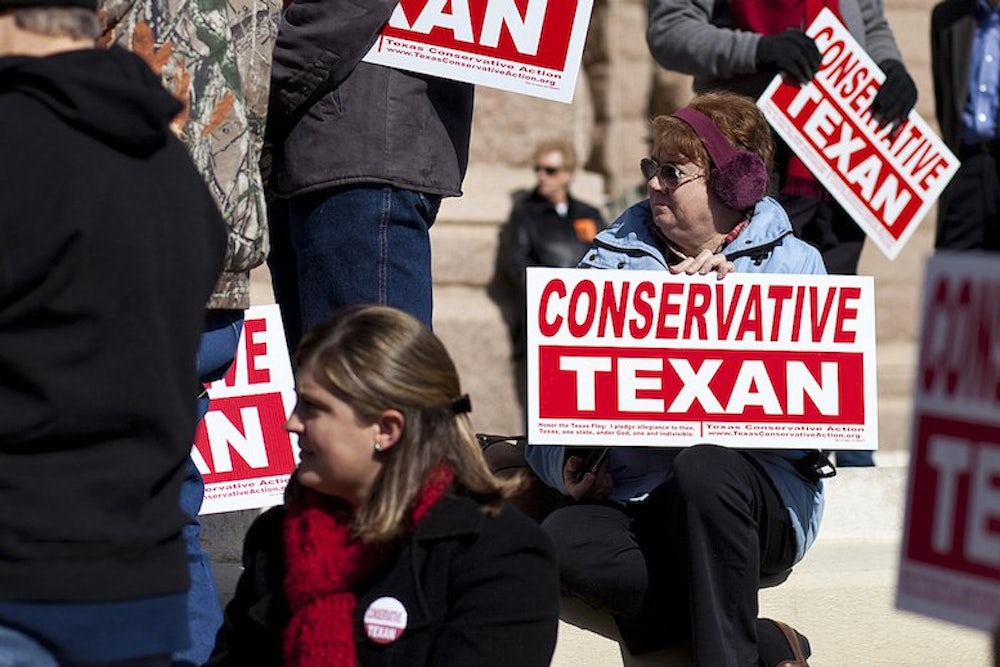In the span of a few days, Texans’ worst fears of federal overreach came true. No other state in the nation felt as much of an impact from Supreme Court decisions this season.
The most far-reaching decision of the term—SCOTUS’ ruling that same-sex marriage is protected by the 14th Amendment—has spurred some predictable backlash among Texas conservatives. In Austin, Dallas, Houston, and San Antonio, same-sex couples have already gotten their marriage licenses, but clerks in several counties have objected on the grounds of religious freedom. Republicans have added to the political backlash. “I think we should respect the religious faith of every American that people have a constitutional right to live according to their faith,” Texas senator and presidential candidate Ted Cruz told The Texas Tribune.
The impact of the court’s recent decisions extends far beyond gay marriage.
Obamacare: The Supreme Court considered whether the U.S. government could provide subsidies to people buying insurance on federally facilitated health insurance marketplaces. Texas, per 2013 Census figures, tops the nation with the most uninsured, at 22 percent. If the court had ruled to remove subsidies, 87 percent of the state’s population would have been at risk of seeing a 305 percent increase, on average, in their insurance premiums. By siding with the Obama administration, the Supreme Court helped 832,334 people.

Mercury Pollution: Not every decision was a progressive win in Texas. Five justices ruled against the Environmental Protection Agency on Monday, sending a regulation on power plant pollution back to a lower court. The DC Circuit Court will determine how to direct the Obama administration to consider the $9.6 billion price tag of installing scrubbers at coal plants. While the mercury and air toxic (MATS) regulation remains tied up in legal battles, Texans will suffer the most. Texas has five of the top ten mercury-polluting plants in the U.S. The EPA estimates that when its rule is in full effect, it will prevent up to 11,000 premature deaths annually across the nation.

Abortion Clinics: In a 5-4 vote on Monday, the court stayed a Texas law that puts many of the state’s abortion clinics at risk of closing, while the court decides whether it will take up the case next term. The law has already successfully shut down about half the state’s clinics, and the justices are considering two contested restrictions in the law requiring all clinics to meet standards for “ambulatory surgical centers" and requiring doctors who perform abortions to have admitting privileges at a hospital. The temporary stay gives women and activists some hope that the court can save what’s left of Texas’ abortion services.

Fair Housing: Civil rights activists won their case against the Texas Department of Housing and Community Affairs, which was charged with contributing to “segregated housing patterns by allocating too many tax credits to housing in predominantly black inner-city areas and too few in predominantly white suburban neighborhoods.” The court ruled that lawsuits filed under the 1968 Fair Housing Act don’t have to prove there was intentional discrimination to win their case; they must show only that the policies have a disparate impact. The decision should make it easier to challenge discriminatory housing policies in Texas.
Lethal Injection: The ruling in this case, which determined that states may use the sedative midazolam as the first step in executions, doesn’t have much of an impact on Texas, which has not yet turned to the drug. Still, the dissent by Justices Stephen Breyer and Ruth Bader Ginsburg, in which they called the death penalty unconstitutional, could have some ripple effects. Even in Texas, it could “increase the breadth of challenges of the death penalty,” said Jordan Steiker, a capital punishment expert with the University of Texas. “Even though it doesn’t focus on Texas, it cites a number of practices that are relevant to Texas that are part of this case for why the death penalty is on weak footing.”
